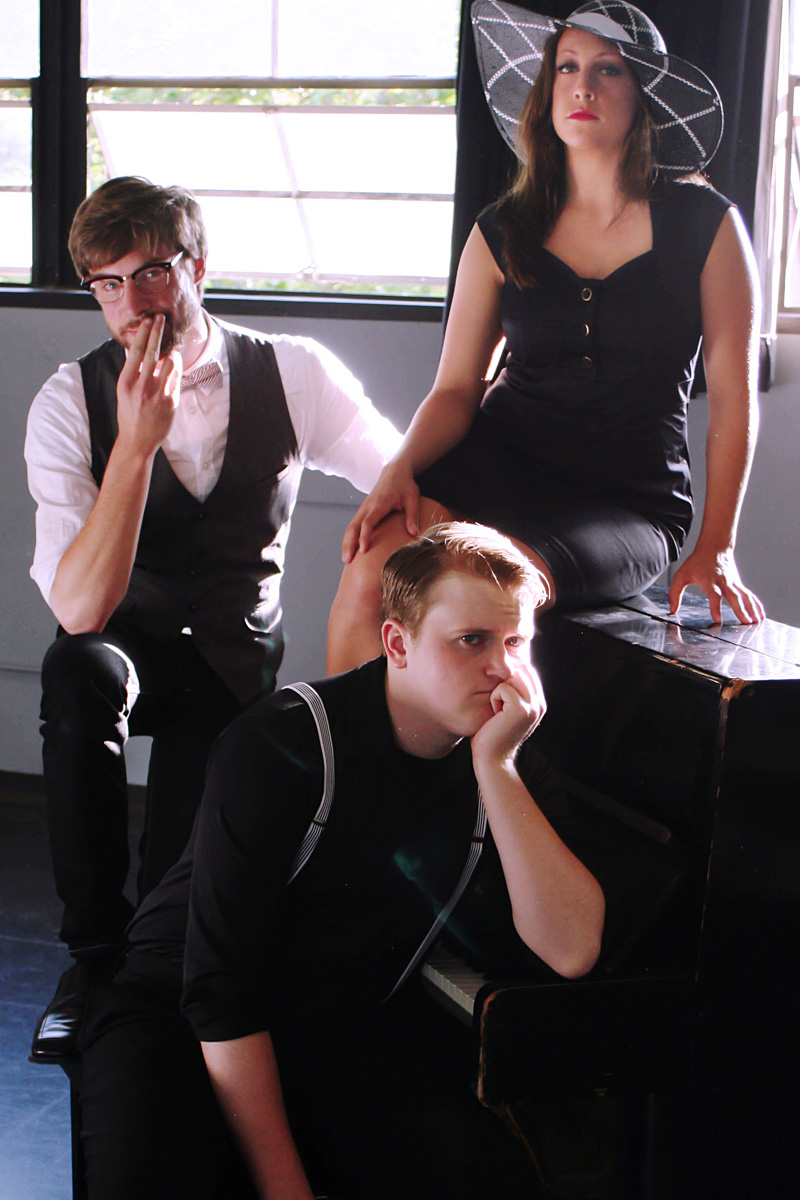Sarah Ruhl’s plays—including Eurydice, Dead Man’s Cell Phone, and The Clean House—answer fanciful questions. “Why did Orpheus turn around to look at Eurydice while they left Hades?” for instance. Or “What if that quiet guy at the next table is dead?” They tend to spin out like poems, using lyrical language and mythic themes in modern, funny, awkward situations. Like the teenagers in American Beauty who become captivated by a dancing plastic bag, Ruhl mines magic from the mundane. The challenge for companies producing her work is to strike a balance among disparate elements that can be kooky, mordant, dreamy, absurd, and schmaltzy. When done well, Ruhl’s plays deliver more impact than would seem possible from summing up the parts.
Ruhl’s 2001 Melancholy Play (her earliest full-length) asks what might happen to a group of friends when the reliably, beautifully, helplessly glum Tilly (Megan Tyrrell) suddenly cheers up. The play opens with her boyfriend Frank (Jordan Melin) delivering an oddly stilted, deliberately overacted preamble “in defense of melancholy.” Later it will make sense—an abstract projection of his character—but these first few minutes will have you looking for the nearest exit.
Hang in there, though. Soon Tilly arrives, wonderfully portrayed by Tyrrell as a timeless caricature of melancholy (depression’s coy cousin), her cubist features simultaneously gazing at and through things, accompanied by discordant live cello notes. These twangs function like a tuning fork set to the pitch of universal wistfulness. Brendan Mack’s simple, window-rimmed set further evokes the alienation of looking through glass, whether at a dress in a window or out at a street scene. Tilly’s contemplativeness and tragic, dark-ringed eyes make her strangely irresistible to her psychiatrist, Lorenzo (Mike Jones), Frank (who’s also her tailor), haircutter Frances (Anna Townes), and the latter’s girlfriend, Joan (Jenn Owen).
All go to war for Tilly’s affections until, at the play’s midpoint, she begins grinning like a reality-show debutante and whacking people on the arm with joyous conviction. (Tyrrell wholly sells this Jekyll/Hyde about-face, trading her darks for pastels.) To Frank, she has become “a sweaty cow.” Lorenzo seeks to reinfect her with melancholy with a hilariously desperate tale about a lady who bought too much milk. The cast then sings a dirge called “Oh, for the Melancholy Tilly!”
By design, Ruhl’s play refuses any consistent tone. You can’t call it a straight comedy or absurdist farce, and the abrupt shifts in mood are no less device-y than Tilly’s sudden good cheer. As a result, under the direction of Lexi Clements Deschambault, Melancholy Play offers many a delicious moment, but also a number of off-key plinks between the ivories. (How ACT will treat Ruhl’s more recent and acclaimed In the Next Room (or The Vibrator Play), which begins previews next week, should be fascinating to compare.)
It’s to Ruhl’s credit, however, that when a character turns into a morsel of food, we stop worrying about plausibility altogether and just go with it.








